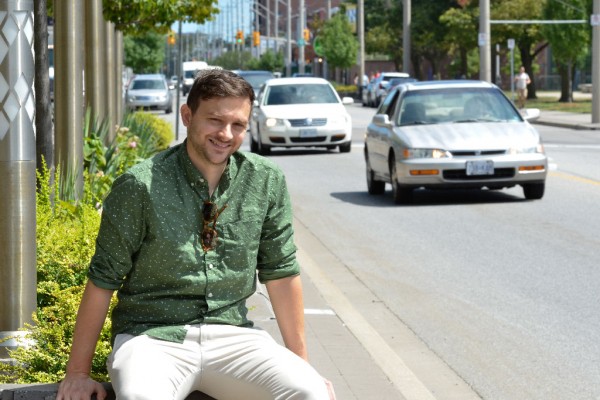 Human kinetics professor Francesco Biondi is leading research into the effect of vehicle automation on driver cognitive load.
Human kinetics professor Francesco Biondi is leading research into the effect of vehicle automation on driver cognitive load.
Most cars have cruise control, automatically slow down if you get too close to the vehicle in front of you, or alert you if you are drifting out of your lane.
But do such automations make drivers less attentive, increasing the risk of collisions?
UWindsor human kinetics professor Francesco Biondi and engineering professors Yong Hoon Kim and Chis Lee have been awarded nearly $59,000 from the Social Sciences and Humanities Research Council of Canada to study this question. Together with engineering professor Balakumar Balasingam, they are looking at the effect of partially automated driving on what they call “driver cognitive load.”
Cognitive load refers to the amount of thinking and the degree of attention a person must give to a task.
“We anticipate that operating vehicles with partial automation will reduce drivers’ attention toward the road and, in turn, impair their reactivity to potential driving hazards,” Dr. Biondi said.
Biondi has researched driver cognitive load during manual driving. The new two-year research project will revisit that research by measuring driver cognitive “underload” during partially automated driving.
For the study, the researchers will put drivers behind the wheel of a simulated vehicle. They will measure the drivers’ reactions when the partially automated systems are suddenly disengaged, and measure the effects of those reactions on collision risks.
Building on past research by Dr. Kim, the researchers will develop warning strategies that can be built into the automated systems and investigate which one is most effective in reducing collision risks.
Industry researchers will collaborate on the project. They include researchers from vehicle manufacturers Jaguar and Land Rover, Japanese-based automotive components manufacturer Denso, and U.S.-based tech company Intel.
The research will have applications in both the automotive and military sectors, Biondi said.
“This project will inform automotive manufacturers on the design of warning strategies for partial driving automation,” he said. “Results from this project will also help the Department of National Defence develop tools to assess cognitive abilities, examining the psychological demand of using semi-autonomous systems during military operations.”
Biondi and his team are seeking a master’s student in engineering or human kinetics to work on this project starting in Fall 2019 or Winter 2020. Follow this link for information on how to apply.
─ Sarah Sacheli
